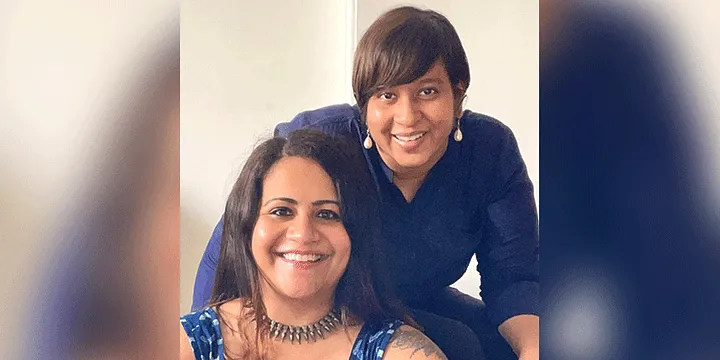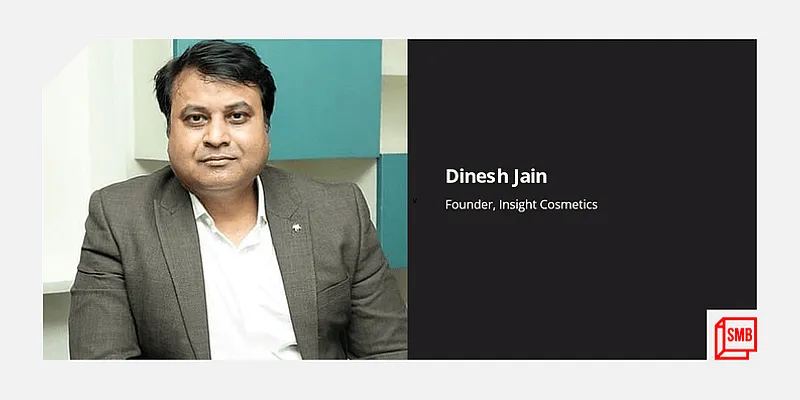Meet these new-age Made in India cosmetic brands making a splash among legacy names
While the Indian cosmetic industry is booming and many new brands are joining the league, SMBStory brings to you a list of four Made in India, new age cosmetic brands that are wooing customers big time and growing tremendously.
Well, there are a lot of thoughts about makeup but one thing that’s sure to stay is that those who love makeup, love to flaunt it most of the time. Going by the stats, one would assume India has a booming cosmetic market.
According to RedSeer, India’s beauty and personal care industry is expected to grow at 12 percent per annum to reach $28 billion by 2025, from an estimated $16 billion in 2020.
The domestic cosmetic industry has been dominated by maestro brands like Lakme, Colorbar, Lotus, etc. However, new-age brands that are direct-to-consumer (D2C), vibrant and offering a large variety, are wooing customers through their vast offerings and have emerged to be major players in the market.
SMBStory lists four such Made in India cosmetic brands that are creating waves in a traditionally legacy industry.
Sugar Cosmetics

Vineeta Singh, CEO and co-founder, SUGAR Cosmetics
Co-founders and life partners Vineeta and Kaushik Mukherjee in 2012 started Fab Bag, a monthly makeup and beauty subscription platform for women. In 2015, the duo decided to pivot and focus full time on cosmetics made specifically for the Indian woman.
But the going wasn’t easy.
The Mumbai-based D2C brand did not have enough money to even import its first batch of lipsticks, which were manufactured in Germany.
Things have changed five years down the line.
The women-centric D2C brand, with a focus on core business fundamentals and an innate understanding of the customer and her needs, showcased an unrelenting never-give-up spirit to endure one of the longest waits for funding - 58 months from seed to Series A.
But playing the waiting game helped SUGAR score.
SUGAR was built targeting the new-age millennial woman. “They are very different from their mothers -- they wear makeup on a regular basis, and not just for special occasions and weddings; they are inspired by other real women and not starstruck by celebrities; and they shop online,” Vineeta explains.
SUGAR focuses on three main factors: creating products that are long-lasting, weather-proof, and suitable for the tropical Indian weather. The brand manufactures its products in India, Germany, Italy, and Korea, and targets Indian millennial women.
Vineeta believes that there is a big opportunity for SUGAR to expand from the 10,000-plus stores it is available in at present to 40,000-50,000 stores across more than 300 cities, and have much deeper distribution in Tier III and IV towns and cities.
Renee Cosmetics

Renee Cosmetics founder Aashka Goradia
In recent years, the increasing penetration of the Internet and the adoption of western culture in India has led to the growth of online markets for cosmetic products.
It is against this backdrop that actor-turned-entrepreneur Aashka Goradia realised her dream to manufacture and sell cosmetic products under her own brand, .
The cosmetics manufacturing brand claims to be 100 percent cruelty-free, paraben-free, and FDA approved.
Aashka tells SMBStory:
“Make-up is a form of empowerment, and through my brand, I wanted to create products celebrating women’s natural beauty. Alongside ex-Beardo founders Priyank Shah and Ashutosh Valani, I started Renee in Ahmedabad in 2018 and launched cosmetic products such as a Fab 5-In-1 Lipstick, bold 3D Eyelashes, and more.”
The products made by Renee’s manufacturing partners in Gujarat were then sold on its website, as well as , , , and social media channels.
Aashka does not disclose the brand’s sales figures but says the strategy has worked, and Renee has grown quickly from a small manufacturing enterprise to a team of 50 employees.
“Our revenue has risen 30X, and we are now targeting an ARR of Rs 100 crore,” she says, adding, "We have engaged approximately 75,000 consumers in the last three months."
Zilch Cosmetics

Giving up the security of a salaried job and taking the entrepreneurial plunge is never an easy decision. For Ananya Ukil (35) and Mudra Mukesh (35), the move was backed by their belief in building an online cosmetics brand and capitalising on the growing cosmetics market in India.
With established players, including L'Oreal India, Lakme, Colorbar, Lotus, etc., and younger ones such as SUGAR building online stores and expanding their product portfolios — Ananya and Mudra felt there was a problem of plenty.
“A 10-step skincare routine using multiple products can be hard to get behind. We felt that whatever your skincare needs, maybe two or three multifunctional products should be able to deliver the results you are looking for,” says Ananya.
With this in mind, the duo started in Delhi in 2019 and launched their range of makeup, skincare, haircare, and body care products.
“As online cosmetic brands are looking to make headway in the competitive Indian beauty market, we are positioning Zilch to appeal to the discerning online shopper. The typical Zilch skincare or makeup product is priced between Rs 450 and Rs 1200,” says Ananya.
Zilch is looking to dive deeper into the makeup category and develop innovative skincare and wellness products that it can take to international markets in the coming year.
Insight Cosmetics

Dinesh Jain was just a child when his father Bastimal Jain started a small cosmetic manufacturing unit making products like sindoor, nail polish, talcum powder, etc., in the late 1970s. Bastimal, an MBBS doctor, set up the business in Borivali, Mumbai, in partnership with a chemist friend, to try his luck in entrepreneurship.
Dinesh often visited the unit after school, keenly observing the daily operations. And many years later, in the late 80s, while still in college, he got involved in the business full time.
Now, over thirty-five years later, the small manufacturing unit has scaled up to become Insight Cosmetics, a makeup brand for the masses with more than 350 stock keeping units (SKUs) and a presence in over 7,500 stores pan India across 20 states.
Dinesh talks about how he took the reins of the business to help it thrive in a cosmetic industry that’s valued at over $20 billion, competing with the likes of Blue Heaven, Elle 18, Coloressence, Lotus Herbals, and more.
Dinesh says that the cosmetic industry in India is one of the fastest-growing, dominated mainly by big players like Hindustan Unilever, Colgate-Palmolive India, and L'Oréal India. Brands like Revlon, Maybelline, Faces, and Avon have existed in the market for decades, and have a loyal customer base. However, their price points are not embraced by the masses.
According to Dinesh, for a product to be pocket-friendly, its sources need to be local.
“To reduce costs, we did backward integration and set up an in-house packaging unit. Usually, brands outsource packaging locally or import packaging that adds up to the cost of the final product. We reversed this, and so our price remains competitive always,” he adds.
’ growth strategy is based on multiple pillars, with the production of diverse makeup range being at the forefront. Dinesh says he will strengthen the brand’s lip care category by launching a non-transferable lipstick range soon.
Edited by Anju Narayanan












